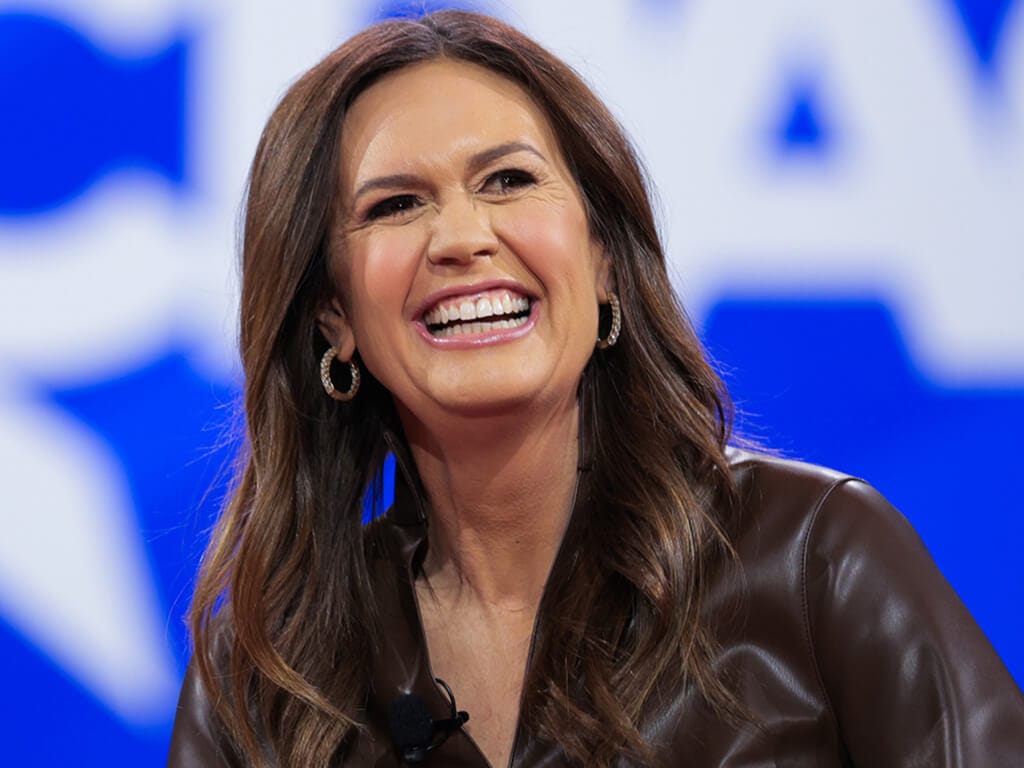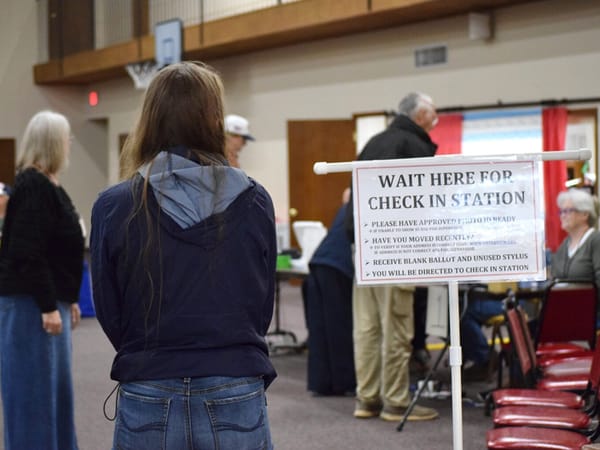Arkansas Unveils Sweeping Health Plan, Tied to $1 Billion Federal Bid
Arkansas has applied for $1 billion in federal Rural Health Transformation funds to overhaul its struggling rural health care system, launching new programs on nutrition, telehealth, workforce training and chronic disease prevention.

Arkansas health care leaders are taking steps to address long-standing challenges with the help of new federal funding. The state has applied for $1 billion through the Rural Health Transformation (RHT) Program, established under President Donald Trump’s One Big Beautiful Bill Act. Although the law has faced criticism for cutting and restructuring Medicaid, it also allocates $50 billion to strengthen rural health care nationwide.
The legislation marks a significant shift, transferring much of the authority over health care spending from the federal government to the states, while still requiring states to follow federal spending guidelines. For Arkansas, this change offers a chance to design solutions that reflect local needs. State officials have already submitted their proposal, seeking a fair share of the funds to rebuild and modernize rural health infrastructure. If approved, the funding could substantially expand access to care and improve health outcomes across rural Arkansas.
Transforming Rural Health
The Rural Health Transformation (RHT) Program is aimed at states like Arkansas that rely heavily on public insurance programs such as Medicare and Medicaid, as per the Arkansas Center for Health Improvement (ACHI), a nonpartisan health policy organization.
A recent ACHI analysis highlighted key parts of the program, which includes two rounds of funding that could bring as much as $500 million to Arkansas over the next five years. Governor Sarah Huckabee Sanders’ administration invited health and community stakeholders across the state to submit project proposals for consideration. Despite the ongoing federal government shutdown, states were required to apply by November 5, and Sanders’ office confirmed that Arkansas submitted its application on that date.
The state’s 126-page proposal outlines a $1 billion funding plan divided into five annual payments of $200 million from 2026 through 2031, with the first disbursement expected in early 2026. The final award may vary depending on federal allocations.
Jointly submitted by Governor Sanders and the Arkansas Department of Finance and Administration (DFA), the proposal presents a stark picture of rural health in Arkansas. About 45 percent of Arkansans live in rural areas, making the state one of the most rural in the country. Of Arkansas’s 47 rural hospitals, 30 are considered at risk of closure, including 11 on the brink of insolvency. Nearly 79 percent are operating at a financial loss from patient services. Just 25 of the state’s 75 counties still maintain labor and delivery units, and maternal mortality in rural areas is double that of urban communities.
The plan centers on four major initiatives: HEART, PACT, RISE, and THRIVE. HEART (Healthy Eating, Active Recreation, and Transformation) focuses on improving health outcomes through nutrition, physical activity, and chronic disease management. PACT (Promoting Access, Coordination, and Transformation) aims to integrate specialty care, preventive screenings, telehealth, and trauma-ready services while promoting data sharing and regional coordination. RISE (Recruitment, Innovation, Skills, and Education for Arkansas) aims to strengthen the state’s rural health care workforce by expanding residency programs, enhancing clinical training, and offering recruitment incentives to attract and retain medical professionals. THRIVE (Telehealth Health Monitoring and Response Innovation for Vital Expansion) targets telehealth and emergency response modernization, supported by a $266.75 million budget for remote patient monitoring, telehealth expansion, and critical infrastructure upgrades.
Each initiative leverages modern health care technology, including patient-centered artificial intelligence, along with evidence-based prevention programs, data analytics, and targeted community interventions to build a more sustainable and responsive rural health system. The proposal outlines several core goals: launching scalable programs to “Make Arkansas Healthy Again,” strengthening the workforce without long-term dependence on federal funding, developing new revenue models for sustainable care delivery, and making one-time investments in infrastructure and technology to reshape how health care is delivered in rural Arkansas.
How the Money Will Be Distributed
The proposed $1 billion budget outlines a detailed breakdown of funding across Arkansas’s four rural health initiatives, along with administrative and personnel costs.
The HEART (Healthy Eating, Active Recreation, and Transformation) program is set to receive $150.5 million for nutrition and chronic disease management. Of that amount, $67.5 million will fund chronic disease prevention and management demonstration projects, $26 million will go toward local food access and nutrition programs, $25 million will support facility enhancements to improve exercise and recreation access, $23 million will be dedicated to school-based clinics and nutrition programs, and $9 million will fund outreach and education grants.
The PACT (Promoting Access, Coordination, and Transformation) program will receive $393 million, focusing on AI-enabled patient records, remote health monitoring, and expanding access to care. This includes $125 million for specialty and telehealth service expansion, $125 million for hospital acquisitions, partnerships, and facility upgrades, $110 million for developing clinically integrated networks, and $25 million to expand professional practice authority among health care providers.
The RISE (Recruitment, Innovation, Skills, and Education for Arkansas) program is allocated $161.5 million to strengthen workforce development and training. Of this, $70.25 million will expand residency programs and scholarships, $67 million will provide recruitment and retention incentives, $16.3 million will support career advancement for nurses and allied health workers, and $8 million will fund leadership training initiatives.
The THRIVE (Telehealth Health Monitoring and Response Innovation for Vital Expansion) initiative will receive $266.75 million to integrate specialty care and telehealth services into rural communities. The budget designates $105 million for medical and emergency medical service (EMS) equipment upgrades, $91.75 million for remote patient monitoring systems, $60 million for expanding telehealth infrastructure, and $10 million for developing virtual specialty care networks.
In addition to these program allocations, the proposal includes $25 million for contracted administrative costs, $2.5 million for personnel expenses, and $700,000 in fringe benefits. The personnel budget includes a project director position to be held by Andy Babbitt, the current state comptroller and deputy director of the Department of Finance and Administration, who would earn $500,000 annually over the five-year program period.
Broad Support for the Ambitious Plan
The sweeping health overhaul has received an encouraging response from both the public and the health care community. According to a press release from the governor’s office, the application was developed with input from physicians, nurses, pharmacists, hospitals, universities, community-based nonprofits, and other stakeholders across Arkansas. The Sanders administration also launched an online portal that collected more than 300 submissions offering ideas on how the funding could be used.
The proposal has strong legislative backing, with Governor Sanders pledging to sign an executive order requiring vending machines to include healthy options. Sanders said improving the health and well-being of all Arkansans remains a top priority for her administration and that the Rural Health Transformation Program will build on the state’s progress in areas like maternal health, food security, and statewide nutrition initiatives. She added that the funding will help increase access to care and reduce inefficiencies across the health care system, ultimately benefiting smaller communities throughout Arkansas.
Members of the Arkansas General Assembly also provided input, and the proposal includes letters of endorsement from all of Arkansas’ U.S. congressional delegation, including Senators John Boozman and Tom Cotton, and Representatives French Hill, Bruce Westerman, Steve Womack, and Rick Crawford. Several state officials and health care leaders also submitted letters of support.
For now, Arkansas must meet several conditions outlined by the Centers for Medicare and Medicaid Services (CMS) to qualify for the funding. These include bringing back the Presidential Fitness Test in schools by December 31, 2028, adding nutrition education to medical school programs, and passing legislation in 2027 to expand the scope of practice for pharmacists and other health professionals, with an expected implementation date of December 31, 2027.





